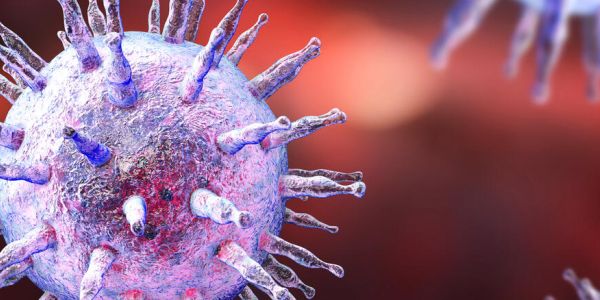Featured News
September 15, 2021
Wistar welcomes Dr. Noam Auslander as an assistant professor in the Cancer Center’s Molecular & Cellular Oncogenesis Program. She applies artificial intelligence (AI) through high-throughput comp…
September 15, 2021
Dr. Hildegund Ertl, Wistar immunologist and vaccine developer, has been featured in local and national media and sought after by journalists as a source of expert opinions. A well-spoken scientist, a…
September 13, 2021
Mice differ from people in many ways. But over the last decade, scientists have succeeded in engineering mice that are more humanlike in their ability to be infected with HIV, making it possible to s…
September 13, 2021
Last February, Wistar welcomed the inaugural group of Cheyney University students enrolled in the biomedical research and training program co-developed in 2020 by the nation’s first biomedical resear…
September 13, 2021
Many people unwind in front of the television after a long day. But Noam Auslander, Ph.D., who joined The Wistar Institute Cancer Center in June as an assistant professor, often spends the evening gl…
September 13, 2021
Studying Immunology and Cancer, Nan Zhang, Ph.D., Delves Into Mysteries Of Ovarian Cancer Metastasis
Few biologists can say they saw a type of cells for the first time. Nan Zhang, Ph.D., who started at The Wistar Institute in September as an assistant professor, became one of those biologists when…
September 9, 2021
Scientists developed COVID-19 vaccines in record time — less than a year after the genome of the virus was sequenced, countries started authorizing use of multiple vaccines. But the virus is rapidly…
September 8, 2021
Viruses impact human health in many ways and can be the underlying agents that cause cancer. The pandemic has reminded us how pervasive viruses are in human life. We know they can cause infection, ma…
September 3, 2021
The Caspar Wistar Fellowship is a model for recruiting the best and brightest junior scientists to Wistar where they can build scientific networks and advance their unique independent research progra…
August 31, 2021
Wistar is pleased to welcome two new assistant professors starting September 1. Dr. Amelia Escolano researches new vaccine approaches against highly mutating viruses. She will join the Vaccine &…









